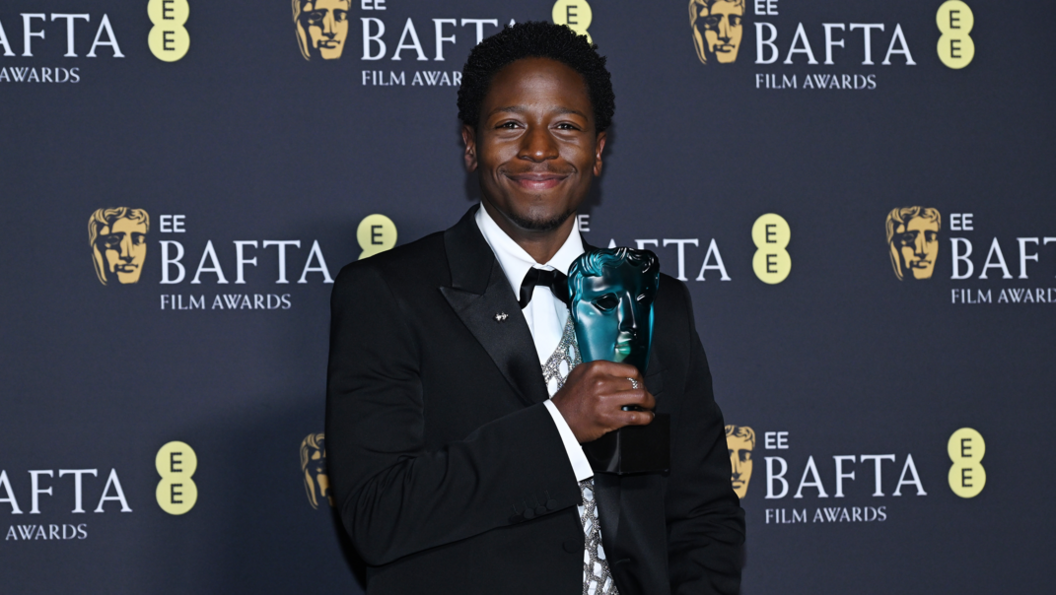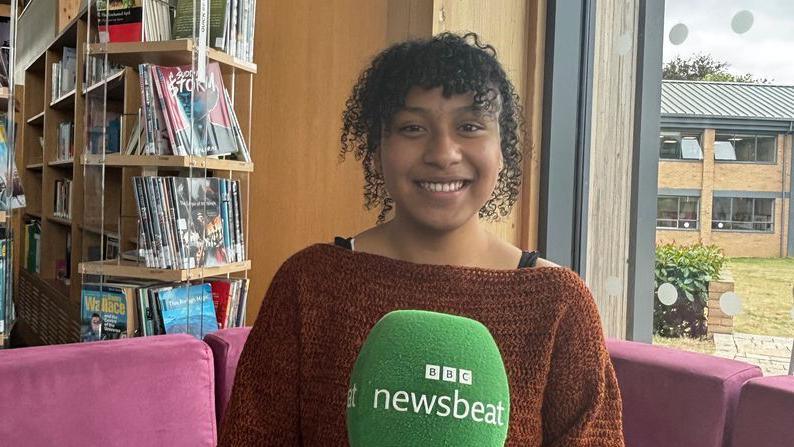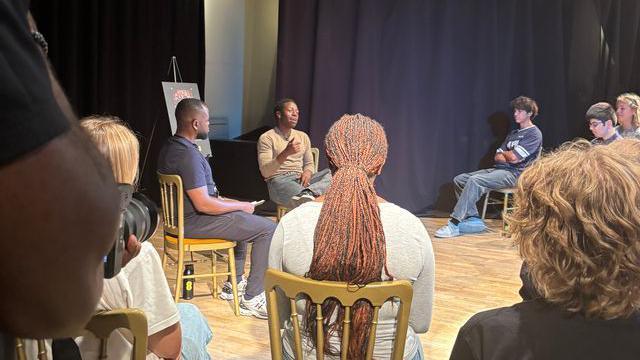The power of seeing yourself represented on-screen

David Jonsson says his parents supported his efforts to break into acting
- Published
After a lifetime of loving film and TV, Rose Wenje realised she wanted to work in the industry.
The 17-year-old, from Northamptonshire, says she first started to seriously consider it as a career during the Covid-19 pandemic.
"At first I wanted to be an actor to play a superhero," the Marvel fan tells BBC Newsbeat.
Rose has since shifted her focus towards directing, and admits opting for a creative career felt risky.
"It did feel like I was going out of the norm," she says.
Rose says teachers encouraged her to take a more conventional route into a STEM career instead, but this only strengthened her determination.
She went on to win a place on Bafta's Set the Stage initiative, which recruits 16 young film-makers from around the UK to work on a short film.

Rose says that YouTube and social media are making it easier to get into the industry
One of the tutors is actor David Jonsson, who made history as the first black lead in a screen adaptation of an Agatha Christie novel.
As a person of colour herself, Rose says "it's important to allow people who look like me to see people like themselves in the jobs that they want and on-screen".
"It just makes it feel possible to other people, makes it feel that bit more achievable".
David, who also appeared in HBO's Industry, tells BBC Newsbeat how important it is for young people to see those from different backgrounds in the industry.
"That was me," as someone with a working-class upbringing, he says.
"My family is creole, we have African Caribbean inside us, which is all the ingredients for 'just choose a regular job'."
David says his family supported his ambitions to become an actor.
"They also believed in art," he says.
"My dad loved movies and he was a huge advocate for us watching and appreciating art.
"I'm eternally grateful for them taking a chance and saying 'do what you want'."
David says movies from black American film-makers, such as Love and Basketball, Friday and Mahogany inspired him "to dream a bit" and fuelled his own love of movies.
Despite relatives having his back, he admits it felt almost "impossible" to see a way to into film-making from his home of East London.
But he says it didn't stop him from looking for one.
"I always say whatever you love, you'll fight for," says David.

Sixteen selected teens will work a film project over the year with a week-long film shoot in summer 2025
Research from Ofcom shows that those certain backgrounds are less well-represented across the UK broadcasting industry.
In a recent report, the regulator said "people from minority ethnic groups (across the industry as a whole) only account for 11% of those in senior management roles."
It also found under-representation in creative, production and on-screen roles.
Ofcom encouraged broadcasters "could be doing more with regards to specific career development initiatives for under-represented groups".
David hopes Set the Stage can be one of the schemes "opening up doors for more people like myself".
"This is a real career path," he says.
"I am truly grateful to be working in the time that i am, and i want to radiate that not just to our generation but to older ones as well."
Research conducted by EE on Bafta's behalf suggested there was also a generational divide over perceptions of creative careers.
For those who don't have the backing of their parents, it can be a further obstacle, says Rose.
She hopes Set the Stage can help to change that.
"Before the industry was a little bit elitist," she says.
"Film courses were thousands of pounds which is not very viable if you're young and not from a wealthy background".
'Genre-bending, rule-breaking' artist in no rush to find success
- Published6 September
Jobs in video games dried up, so we made our own
- Published5 August
How British footballers are helping women's football in Pakistan
- Published25 July
Initiatives aimed at boosting equity, diversity and inclusion can sometimes face backlash.
But Sarah Adegboyega-Ayeni, 17, another budding director on the Set the Stage scheme, believes film can be a powerful force to unite people.
"That's how we bond with each other," she says.
"Film brings me closer to all different people, of all different ages and sectors of life and society."
Sarah says her favourite movie is Rush Hour, starring Jackie Chan and Chris Tucker, because the two lead characters come together and "work out problems despite their very different backgrounds".
"Film can bridge gaps in communities," she says.
Her coursemate Senu Dissanayake, 17, from Glasgow, says that getting more people producing art improves the range of what's on offer.
"Where you're from has a huge impact on the art that you create," he says.
"So if you're seeing the same stories told by the same types of people over and over again, the only things available to watch are very similar and you're missing out on a huge part of the human experience."
